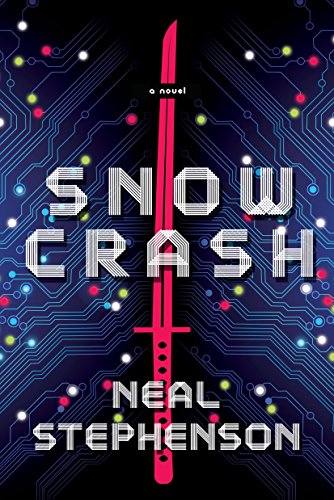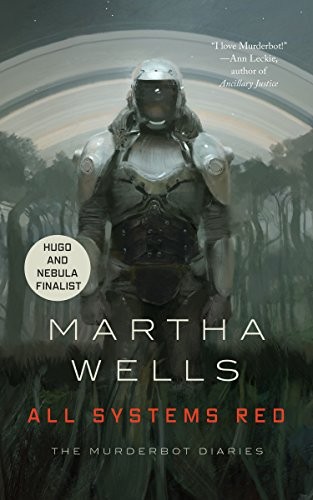Peter Kraus rated The Last Colony: 3 stars

The Last Colony by John Scalzi (Old Man's War, #3)
Retired from his fighting days, John Perry is now village ombudsman for a human colony on distant Huckleberry. With his …
BookWyrm account of @pkraus@berlin.social
This link opens in a pop-up window

Retired from his fighting days, John Perry is now village ombudsman for a human colony on distant Huckleberry. With his …

In the 2050s, Earth has begun to empty. Those with the means and the privilege have departed the great cities …

Jack Holloway works alone, for reasons he doesn't care to talk about. Hundreds of miles from ZaraCorp's headquarters on planet, …

New York Times bestselling and Alex, Nebula, and Hugo-Award-winning author Seanan McGuire introduces readers to a world of amoral alchemy, …

The sentient machines, who have died for the companies that own them over and over, discover that it is time …
Embassytown is an interesting concept: both in the central role language plays in the story, and in the way how our protagonist is mostly an observer rather than an active figure in what feels like all but the last few chapters.
There are plenty of other interesting bits: the concept of floaking, a timeless commentary on AI, and a really cool fresh universe.
Unfortunately, the storytelling method also means the book is not very gripping: why should I read what Avice hears about or remembers, when I could read a different book where the protagonist has more agency? I'm happy I read a book told on this way, because at least now I know it's not for me.
However, the conflict resolution leading to the books ending is contrived. The writing is unbearable in the first chapter and pretentious for the first few after that. The timeline split is not …
Embassytown is an interesting concept: both in the central role language plays in the story, and in the way how our protagonist is mostly an observer rather than an active figure in what feels like all but the last few chapters.
There are plenty of other interesting bits: the concept of floaking, a timeless commentary on AI, and a really cool fresh universe.
Unfortunately, the storytelling method also means the book is not very gripping: why should I read what Avice hears about or remembers, when I could read a different book where the protagonist has more agency? I'm happy I read a book told on this way, because at least now I know it's not for me.
However, the conflict resolution leading to the books ending is contrived. The writing is unbearable in the first chapter and pretentious for the first few after that. The timeline split is not serving much of a purpose.
Overall, I think this will be a book that I didn't actually enjoy that much but might remember for quite some time.

Kai-Enna is the Witch King, though he hasn’t always been, and he hasn’t even always been Kai-Enna!
After being murdered, …

As one of the few witches in Britain, Mika Moon knows she has to hide her magic, keep her head …

Jamie’s dream was to hit the big time at a New York tech start-up. Jamie’s reality was a humiliating lay-off, …

In reality, Hiro Protagonist delivers pizza for Uncle Enzo’s CosaNostra Pizza Inc., but in the Metaverse he’s a warrior prince. …
It's a good book. I found the exposition a little hurried (took a while to remember who's who), but the story is engaging and fast paced.
The "accept everyone as they are" message of the book is very heavy handed at times. And it's a departure from the brutal and ruthless "real life", even within Raadch space.
All in all, a very decent "feel good" book, and certainly not a waste of time. It reminds me of the Wayfarers series, or Swords and Lattes. If you're looking for depth, look elsewhere.

"As a heartless killing machine, I was a complete failure."
In a corporate-dominated spacefaring future, planetary missions must be approved …
If the first book was decent, and the second one okay, this one is a disappointment.
In many places it feels like the author knew what they wanted to happen, but had the wrong characters to do it. The whole Grotta storyline could really have been cut out start to finish (from book one) and the whole trilogy would have been much better for it.
Unfortunately, both of the other stories really take a plunge, especially in the events just before and during the final battle. Everyone suddenly has super powers, but they act as lobotomized puppets, because their ideas do not make any sense. On the other hand, the super powers, hastily introduced in this volume, have the weirdest limitations. Yet our characters are able to understand, interact, and manipulate them immediately. It's hard to buy...
Entertaining and fast paced. Not a hard sci-fi. A perfectly serviceable second installment in a trilogy. No major surprises, some dumb character actions, but at least it gets called out within the book. If you liked the first book, and are keen to see where the characters go next, it's worth it.